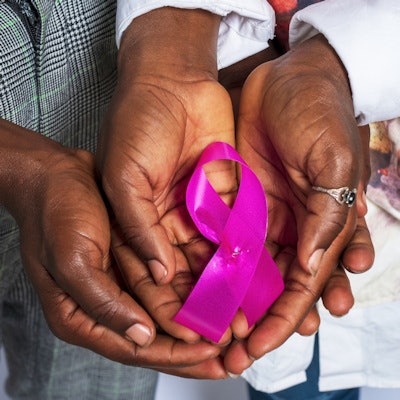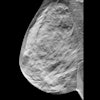
Starting biennial screening mammography at age 40 could cut cancer deaths in Black women by 57%, according to a model study of 100 million women published October 18 in the Annals of Internal Medicine.
A team led by Dr. Christina Chapman from Georgetown University also found that earlier screening can be achieved while maintaining the same level of benefits and harms as seen for white women screened from ages 50 to 74.
"The earlier age of diagnosis, differences in subtypes, [and] disparities in treatment can increase the benefits of screening more frequently or at earlier ages," Chapman told AuntMinnie.com. "But the fact that Black women, on average, die earlier than white women from other causes tends to decrease the benefits of screening, so there really was no way to know [benefits and harms] without doing this study."
The U.S. Preventive Services Task Force (USPSTF) recommends biennial screening mammography for all women beginning by age 50, a B-grade recommendation, and also recommends that some women start as early as 40 years old, a C-grade recommendation. However, this does not account for racial differences in breast cancer rates between women. Black women have higher rates of aggressive cancers at younger ages than white women and treatments for those types of tumors are not as effective, the researchers noted.
Previous research suggests that mortality is higher for Black women regardless of tumor type due to factors related to systemic racism, such as access to high-quality therapies.
Chapman et al wanted to compare tradeoffs of screening strategies in Black and white women under current guidelines. They used an established model from the Cancer Intervention and Surveillance Modeling Network (CISNET) to simulate screening outcomes in U.S. women who were born in 1980 and thus turned 40 in 2020.
"As in prior modeling studies, to focus on screening efficacy, we assumed that 100% of Black and white women used screening," the study authors wrote.
The team found that biennial screening -- screening every two years -- from ages 45 to 74 years was most efficient for Black women, while such screening from ages 40 to 74 years was most equitable.
Starting screening 10 years earlier in Black versus white women was found to reduce disparities in Black/white mortality by 57% with similar life years gained per mammogram for both populations.
If Black and white women were screened biennially from age 50 to 74 years, there would be an excess of 3.29 deaths among Black women (17.6 vs. 14.3 deaths per 1,000 people), according to the researchers.
However, if biennial screening started in Black women beginning at age 40, the researchers said that deaths would decrease by 1.88 per 1,000 women (from 17.6 to 15.7), eliminating 57% of the racial disparity in mortality expected if breast screening were conducted under current guidelines.
The researchers also found that selecting the most equitable treatment strategy was sensitive to assumptions about disparities in real-world effectiveness. For Black women, the less effective that treatment was, the more intensively they could be screened before tradeoffs fell short of those experienced by white women.
Chapman told AuntMinnie.com that future studies may include examining strategies for equitable screening using newer technologies like digital breast tomosynthesis (DBT), as well as calculating costs and understanding how suboptimal screening implementation may affect disparities.
In an invited commentary piece, Dr. David Jones, PhD, from Harvard University called for longitudinal datasets that integrate socioeconomic exposures and racism over individual lifetimes, writing that researchers "cannot rely on a distinction between Black and non-Black."
"Medicine needs to transform its data and descriptive statistics. If we think human differences are important and should inform medical practice, then we need to invest the effort required to map and understand those differences," Jones wrote.
Meanwhile, radiology groups such as the American College of Radiology (ACR), the Society of Breast Imaging, and the American Society of Breast Surgeons say annual screening rather than biennial saves even more lives and yields the highest life years gained.
Dr. Stamatia Destounis from the ACR's Breast Imaging Commission said that women should have a risk assessment no later than age 30 to see whether they should start screening even earlier.
"This particularly applies to Black women and those of Jewish heritage, but is true for all women," she said.
Destounis, however, agreed with the study on the need for increased breast screening attention, citing disparities in diagnosis and mortality rates stemming from lack of screening availability, genetic factors, and other cofactors.
The USPSTF told AuntMinnie.com that the task force's recommendation does not include separate grades by race or ethnicity because the evidence is unavailable, and that starting screening at age 40 is recommended for some women under its guidance.




















